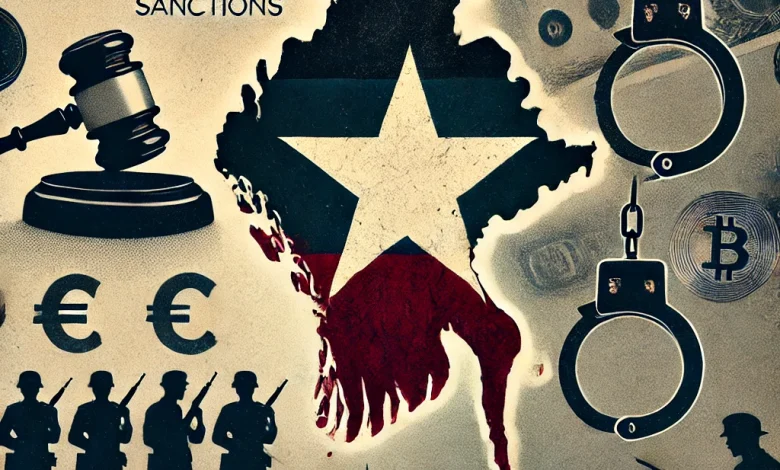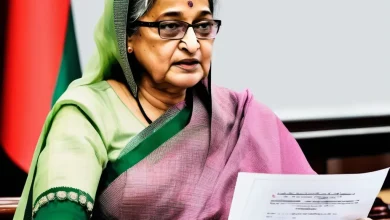US, UK, and Canada Impose Joint Sanctions on Myanmar’s Military Regime
US, UK, and Canada Impose Joint Sanctions on Myanmar’s Military Regime

US, UK, and Canada Impose Joint Sanctions on Myanmar’s Military Regime
In a significant move aimed at curbing the Myanmar military’s oppressive grip on power, the United States, the United Kingdom, and Canada have jointly announced a new round of sanctions. These measures, unveiled on December 23, 2023, are designed to target individuals and entities that continue to enable the junta’s reign of terror, human rights violations, and systemic corruption.
This latest wave of sanctions underscores a coordinated effort by these nations to increase pressure on Myanmar’s military regime, also known as the Tatmadaw, which seized power in a brutal coup in February 2021. By hitting the junta where it hurts most—its finances—the sanctions aim to weaken its ability to perpetuate violence and oppression.
The Targets of the Sanctions
The newly imposed sanctions focus on key military officials, business entities, and sectors that are pivotal to the junta’s operations. These include:
- Senior Tatmadaw leaders accused of orchestrating attacks on civilians.
- State-owned enterprises and private companies closely linked to the military.
- Arms suppliers that have facilitated the flow of weapons used against protesters and ethnic minorities.
- Financial institutions that aid in laundering money for the regime.
The sanctions freeze the assets of these individuals and organizations within the jurisdictions of the US, UK, and Canada. Furthermore, they prohibit transactions and impose travel bans to restrict the junta’s ability to operate globally.
A Dire Humanitarian Situation
Myanmar’s political turmoil has plunged the nation into a state of crisis. Since the military coup, more than 4,000 civilians have reportedly been killed, and over 24,000 have been detained. The junta’s crackdown on dissent, including the use of arbitrary arrests, torture, and mass killings, has drawn widespread international condemnation.
The military’s scorched-earth campaigns against ethnic minority groups, such as the Rohingya, Karen, and Kachin communities, have displaced hundreds of thousands. Entire villages have been burned to the ground, and survivors face dire humanitarian conditions in camps and border regions.
Despite these atrocities, the military regime has largely remained defiant, using state resources to enrich itself and maintain its grip on power.
Economic and Strategic Pressure
The sanctions announced by the US, UK, and Canada are also aimed at crippling the junta’s economic lifelines. The regime heavily relies on revenues from sectors like oil, gas, and mining to sustain its operations. Western nations are now pushing for stricter controls on Myanmar’s lucrative natural resource exports, which have been a key funding source for the Tatmadaw.
By targeting businesses and officials facilitating these revenue streams, the sanctions are expected to disrupt the junta’s financial networks. This economic isolation could further compound the regime’s internal challenges, potentially forcing it to consider reforms or even relinquish power.
Global Implications and Geopolitics
The announcement of these sanctions also highlights the broader geopolitical implications of Myanmar’s crisis. The junta has increasingly turned to nations like China and Russia for support, further complicating global efforts to address the situation.
China, Myanmar’s largest trading partner, has significant economic and strategic interests in the country, including access to the Indian Ocean through critical infrastructure projects. Russia, on the other hand, has supplied weapons and other military aid to the Tatmadaw, strengthening its position against international sanctions.
By imposing these new measures, the US, UK, and Canada aim to counterbalance the influence of these powers while rallying other nations to take a firm stance against the junta.
International Reactions and Challenges
While the sanctions have been widely welcomed by human rights organizations and Myanmar’s pro-democracy movement, their long-term impact remains uncertain. Critics argue that sanctions alone may not be enough to dismantle the junta’s power structure, especially given its access to alternative allies and resources.
However, activists believe that sustained international pressure, combined with support for grassroots movements, could pave the way for a democratic transition. The National Unity Government (NUG), a shadow government formed by elected officials ousted in the coup, has called for greater global solidarity and more comprehensive sanctions targeting Myanmar’s energy sector.
Conclusion: A Step Toward Justice
The joint sanctions by the US, UK, and Canada mark a crucial step in holding Myanmar’s military regime accountable for its actions. By targeting the financial and logistical networks enabling the junta’s rule, these measures aim to disrupt its operations and send a clear message: the international community will not stand by in the face of atrocities.
However, the path to justice and democracy for Myanmar remains fraught with challenges. While sanctions are a powerful tool, they must be accompanied by diplomatic efforts, humanitarian aid, and support for the people of Myanmar. Only through a united and sustained approach can the global community hope to bring an end to the junta’s reign and restore peace and dignity to the nat
![]()




